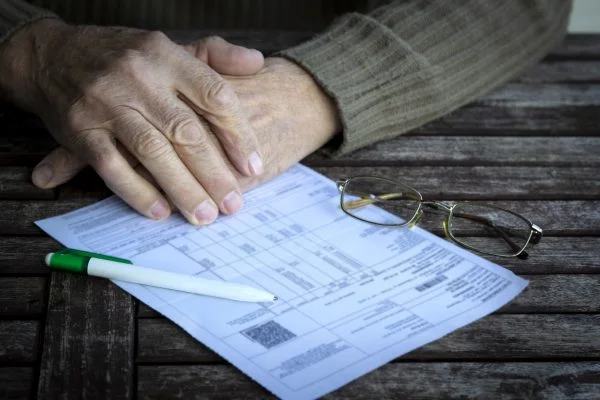
5 Signs of Financial Elder Abuse You Need to Know
Elder abuse at the hands of family, friends, and caregivers is on the rise across the United States. Every year more than half a million reports of elder abuse are reported and even more go unnoticed. Elder abuse can have long-lasting and severe ramifications to the victim and their family. Being aware of elder abuse warning signs is the first step in protecting you and your loved ones. This article will break down some examples of financial elder abuse to look for among your elder friends and family.
1. Changes in Financial Situation
Financial elder abuse is the unauthorized use of an elderly person’s funds or property, either by means of a caregiver or family member. One sign of this abuse includes a sudden change in the adult’s financial situation. This can include significant withdrawals from their account or large checks being written for frivolous goods and services. Pay attention or ask questions about your loved one’s finances; it can end of saving both of you. If you notice that an elder’s finances have taken a decline and you are located in or around the Oakland, Fremont or Pleasanton area, contact Mirador Law for advice.
2. Unpaid Bills & Expenses
Another sign of financial abuse is unpaid bills or other expenses that the elder in the past has been able to pay but is now having trouble keeping up with. Sometimes this can just mean that they have forgotten, but in elder abuse scenarios this is often not the case. Especially if bills go a prolonged time without payment or show fluctuation in payment, be sure to ask your loved one for more information.
3. Forged Signatures
A third sign of financial abuse is signatures that look forged. Elders may many times give access to their “trusted” caregivers or relatives to important forms in their home. This gives abusers the chance they need to forge signatures for financial gain. Forging another’s signature is of course illegal but can be difficult to prove. If you think that a loved one’s signature has been forged and you are located in or around the Oakland, Fremont or Pleasanton area, contact Mirador Law for help now.
4. Lack of Self-Esteem or Trust
Even a lack of trust from an elder can be a sign of financial abuse, since they are unsure if you will take advantage of them or lose respect for them. Older adults often perceive financial abuse as shameful and will be significantly less trusting than they were before. While other forms of abuse may reflect in this change of attitude and security, financial abuse is often indicated by this behavior. Having a frank and non-judgmental conversation can be difficult but is often the only way to get the real story of abuse.
5. Missing or New Names on Documents
The final common sign of financial elder abuse is a change to the names on documents, such as wills, social security information or checks. This can mean that someone has compromised the elder’s financial information without permission or even knowledge. Elders are often unable to stop this behavior, so it is important to help them safeguard their financial information from anyone with access to them.
Seeking Compensation for Victims of Abuse
Abuse can be at the hands of a spouse, close family member, paid or volunteer caregiver, neighbor, or another resident (in a nursing home or other institution). Many times these cases involve more than one defendant – for instance institutional abuse if the abuse has occurred at a care facility. Our attorneys are caring and compassionate, spending time with our clients to fully understand all aspects of their physical and emotional injuries. We will work closely with you every step of the way to make sure you understand your choices and help you make the best decisions for your situation.
Abuse of someone 65 or older is considered elder abuse. If you or a loved one has experienced elder abuse in any form, including physical, psychological, sexual or financial abuse or neglect, we will aggressively litigate your case. Contact us at Mirador Law for a free initial consultation.
Sources
- https://www.helpguide.org/articles/abuse/elder-abuse-and-neglect.htm
- https://www.nia.nih.gov/health/elder-abuse
- https://dailycaring.com/6-signs-of-elder-abuse-in-seniors-with-dementia/
- https://www.webmd.com/healthy-aging/elder-abuse-signs#1
- https://www.aplaceformom.com/planning-and-advice/articles/signs-of-elder-abuse
